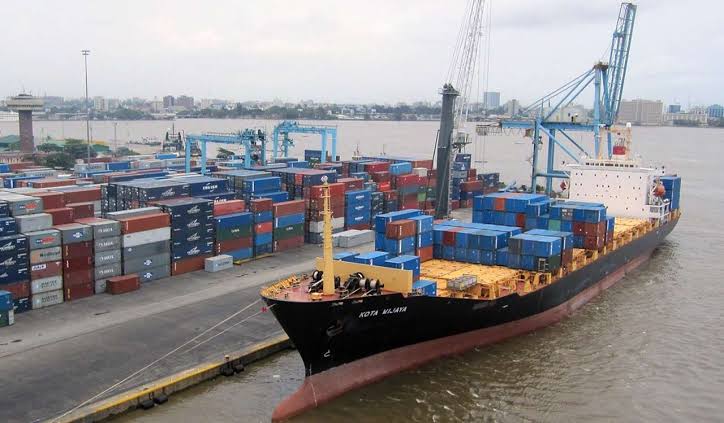Business
AfCFTA: Nigeria sets another date to commence official export to S’ Africa, Cameroon, others in April

After serially missing crucial deadlines for joining other nations in trading under the African Continental Free Trade Area (AfCFTA), Nigeria is to begin the formal export of locally produced commodities to South Africa, Rwanda, Cameroon and Kenya from next month under the Guided Trade Initiative (GTI), the Nigerian National Action Committee (NAC) of AfCFTA announced on Thursday.
The GTI, an interim arrangement designed to test the legal framework and Customs processes of participating state parties before the full implementation of the trade agreement, was officially launched on October 7, 2022, the date was missed by Nigeria.
Again, Nigeria missed the August 2023 trading date for the launch of the second phase of GTI, passing over the opportunity to join countries like Rwanda, Cameroon, Egypt, Ghana, Kenya, Mauritius, Tanzania, and Tunisia, which have already commenced trading under the GTI.
Despite assurances from the NAC that Nigeria would participate in the second phase of GTI by October 2023, the nation once again failed to meet the target. NAC had cited the awaited official launch date from the AfCFTA Secretariat in Accra, Ghana, as the reason for the delay, further exacerbating concerns about Nigeria’s readiness for AfCFTA trading.
Although some businesses in Nigeria currently export products to these countries, they make such exports informally, but beginning April, Nigerian companies would start the official and formal export of commodities to African nations under the AfCFTA treaty.
However, speaking on the sidelines of the Abuja Stakeholders Workshop on the AfCFTA Digital Trade Protocol, on Thursday, the Executive Secretary, National Action Committee on AfCFTA, Olusegun Awolowo, told journalists that though trading under the main AfCFTA had yet to start, the secretariat of the programme had introduced the Guided Trade Initiative.
He said, “We haven’t started trading in AfCFTA, we are duly going through the protocols. But recently the AfCFTA secretariat itself launched what they call the Guided Trade Initiative to get some countries to start trading outside their regional blocks.
READ ALSO:Despite AfCFTA, fresh report says African countries trade more outside continent
“We’ve signed onto it and I think that by the end of April we are taking a few companies, big, medium and small enterprises to actually launch trading in Africa. All we are doing now is that we are going through and signing all the protocols, as well as finding a way on how to implement them.
“So, we are now at the stage of implementation. Therefore, trading hasn’t really commenced under AfCFTA. It is not an overnight thing, you have to go through all the protocols, sign them and agree.
“However, we are hoping that we are able to start trading under the GTI, not on the main AfCFTA itself, by the end of April. So it will be on record that Nigeria has now started exporting officially and formally, because, of course, informal trade is going on anyway.”
Asked to name some of the countries that had also signed onto the GTI scheme which Nigeria would formally start exporting products to, Awolowo replied, “We are going to South Africa, Kenya, Cameroon and Rwanda. This is under the Guided Trade Initiative that was brought by AfCFTA, knowing that trade agreements take long.
“In fact, this AfCFTA is the fastest one. How long did it take the World Trade Organisation to get on ground? They are still signing protocols up till today. But this is the fastest one and to fast-track it, that is what the GTI is all about.
“It is an initiative that enables countries to choose. Let’s take the companies and let them actually export from the various ports. Then we test the capacities of the ports, test the capacities of the shipments and the capacities of cargoes. Then the private sector can fully buy into it. So that’s what is going to happen.”
By: Babajide Okeowo
Join the conversation
Support Ripples Nigeria, hold up solutions journalism
Balanced, fearless journalism driven by data comes at huge financial costs.
As a media platform, we hold leadership accountable and will not trade the right to press freedom and free speech for a piece of cake.
If you like what we do, and are ready to uphold solutions journalism, kindly donate to the Ripples Nigeria cause.
Your support would help to ensure that citizens and institutions continue to have free access to credible and reliable information for societal development.
























